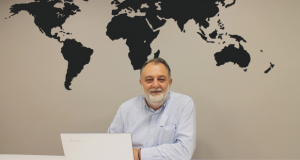ANKARA – A new World Bank report on Turkey has claimed that “integration and inclusion” have dominated the country’s economic development over the past three decades.
According to the organization’s report “Turkey’s Transitions: Integration, Inclusion, Institutions,” steady growth over the past 30 years has brought the country to the threshold of becoming a high-income economy. “Prosperity has been broadly shared across income groups in the society, and the size of the middle-class was doubled,” the report claims. The document examines Turkey’s experience in transitioning from a lower middle-income to an upper middle-income economy, and looks at what has worked well and what needs to change. According to the report, Turkey’s economic integration – both in terms of the country’s melding into global markets and the national inclusion of underdeveloped regions in Turkey’s economy – has been a driver of economic progress. Moreover, Turkey used the opportunity of a deep financial crisis over a decade ago to reform its banks and its public finances – allowing public expenditure to move from debt service to public service.
The report also says that economic progress in the country has been socially inclusive as poverty has been reduced by more than half, and access to high-quality health, education and municipal services has expanded. “Turkey has yet to establish the institutional prerequisites of a high-income economy. In a less-forgiving global economic context, the risk of the so-called ‘middle-income trap’ looms for countries that let off on their reform efforts. For Turkey to complete the transition to a high-income economy, improvements in the rule of law, in public accountability and transparency, and in the climate for entrepreneurship and innovation will be needed,” the report warns. “Turkey is undergoing multiple transitions en route to a high-income economy, some more advanced than others,” World Bank director for Turkey, Martin Raiser, said. “We hope Turkey’s experience inspires policy makers in other emerging markets to aim for high-income status.” “And we hope that by drawing up a balance sheet of Turkey’s achievements and challenges, this report will also inspire Turkey’s policy makers to redouble their own reform efforts and lift their country into the ranks of advanced high-income economies. That would make the lessons from Turkey’s development experience all the more convincing for other countries,” Martin added. “With a per capita income of around $10,500, Turkey is just a few years away from crossing the threshold of becoming a high-income economy, if past growth rates are sustained,” Laura Tuck, World Bank Vice-President for Europe and Central Asia said. Turkey’s average annual growth rate was 4.5 percent between 1960 and 2012 and the share of the country’s middle-class increased from 18 percent to 41 percent of the population between 1993 and 2010, according to the bank.
 SleepTech Magazine Mattress, Accessories, Machinery, Raw Materials
SleepTech Magazine Mattress, Accessories, Machinery, Raw Materials


